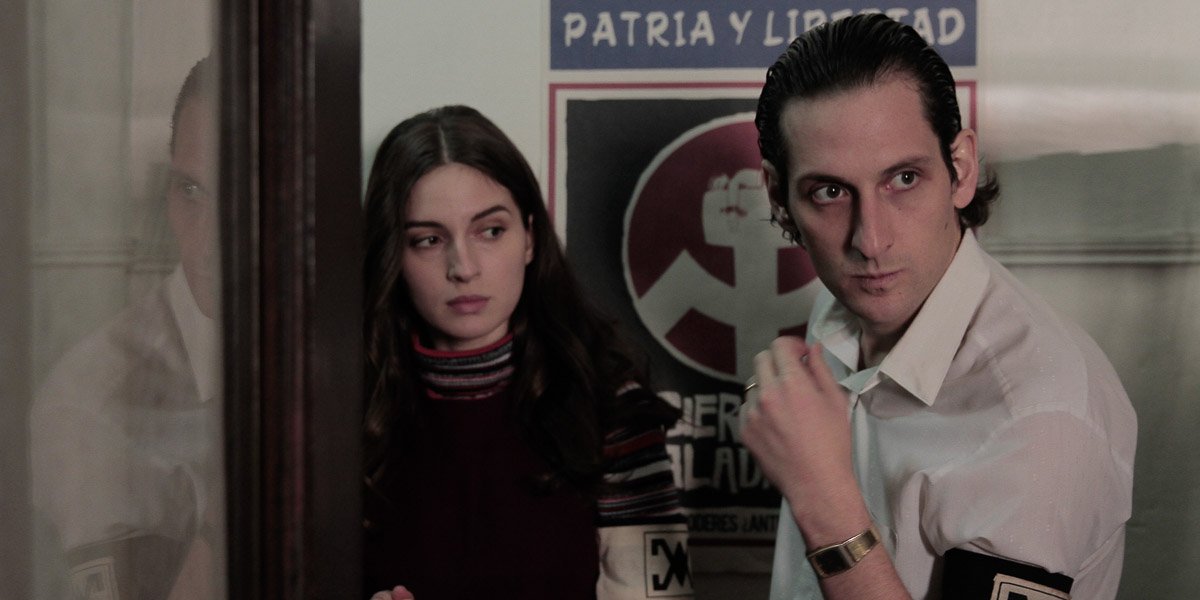In 1971 Chile, Ines (Maria Valverde, Mercedes Moran) and her husband Justo (Gabriel Urzua, Felipe Armas) recruit the aggressive Gerardo (Pedro Fontaine, Marcelo Alonso) to act as muscle for Fatherland and Liberty, a fascist organisation that intends to bring down the socialist government, that results in Gerardo going into exile once he has fulfilled his purpose. Almost fifty years later, the arrest of the older Gerardo not only threatens to reveal the past of Ines and Justo, but also allows him to recruit support for his plan to achieve the Fatherland and Liberty’s goals again…
Director Wood effectively highlights the disturbing rise of far-right extremism in early 1970s Chile through the use of flashbacks showing Ines and Justo’s use of Gerardo to fulfil Fatherland and Liberty’s aims, as well as archive footage to highlight the real-life activities of the group. In addition, the effects of Gerardo’s reappearance on Ines and Justo’s lives are also skilfully shown, with Ines’s job as a columnist and the couple’s relationship with their son and grandchildren placed under threat by revelations of their past involvement with the fascist movement.
However, what is even more striking is the depiction of Gerardo’s radicalisation of his fellow prisoners as well as young people on the outside, mirroring his own recruitment into fascism and highlighting the dangers of history repeating itself – a point increasingly relevant in this day and age, when far-right populism is enjoying a political resurgence. The climactic sequence showing Gerardo fulfilling his nationalistic aims at a Haitian church particularly drives this point home, with Wood’s decision to avoid showing the majority of the resulting violence making the impact of the scene all the more powerful.
Both Valverde and Moran do excellent jobs of portraying the two versions of Ines. Valverde captures the ambitious nature of the young student who wants to stop the perceived threat of Marxism, as well as her conflicting love for Gerardo, whilst Moran effectively conveys the older woman’s unyielding insistence in the rightness of her past actions as well as her desperate attempts to hold on to her comfortable middle-class life by preventing Gerardo from revealing more about their activities as part of Fatherland and Liberty.
However, it is Alonso as the older Gerardo who impresses the most, as he eschews melodramatics in order to depict the character’s fanaticism as well as his power over his followers. His scenes in prison in particular highlight Gerardo’s danger in a realistic manner without reducing the character to a one-dimensional villain. This can be seen in a confrontation in the prison yard with a black prisoner, which shows Gerardo’s racism and propensity for violence in a subtle way.
Spider provides a chilling portrayal of the ease of far-right radicalisation through its portrayal of the real-life rise of a fascist movement in 1970s Chile, as well as highlighting the continued threat the ideology poses today. This element places the film above others that simply chronicle historical events by making its subject matter relevant to contemporary viewers.
Screening as part of Edinburgh Spanish Film Festival 2020
